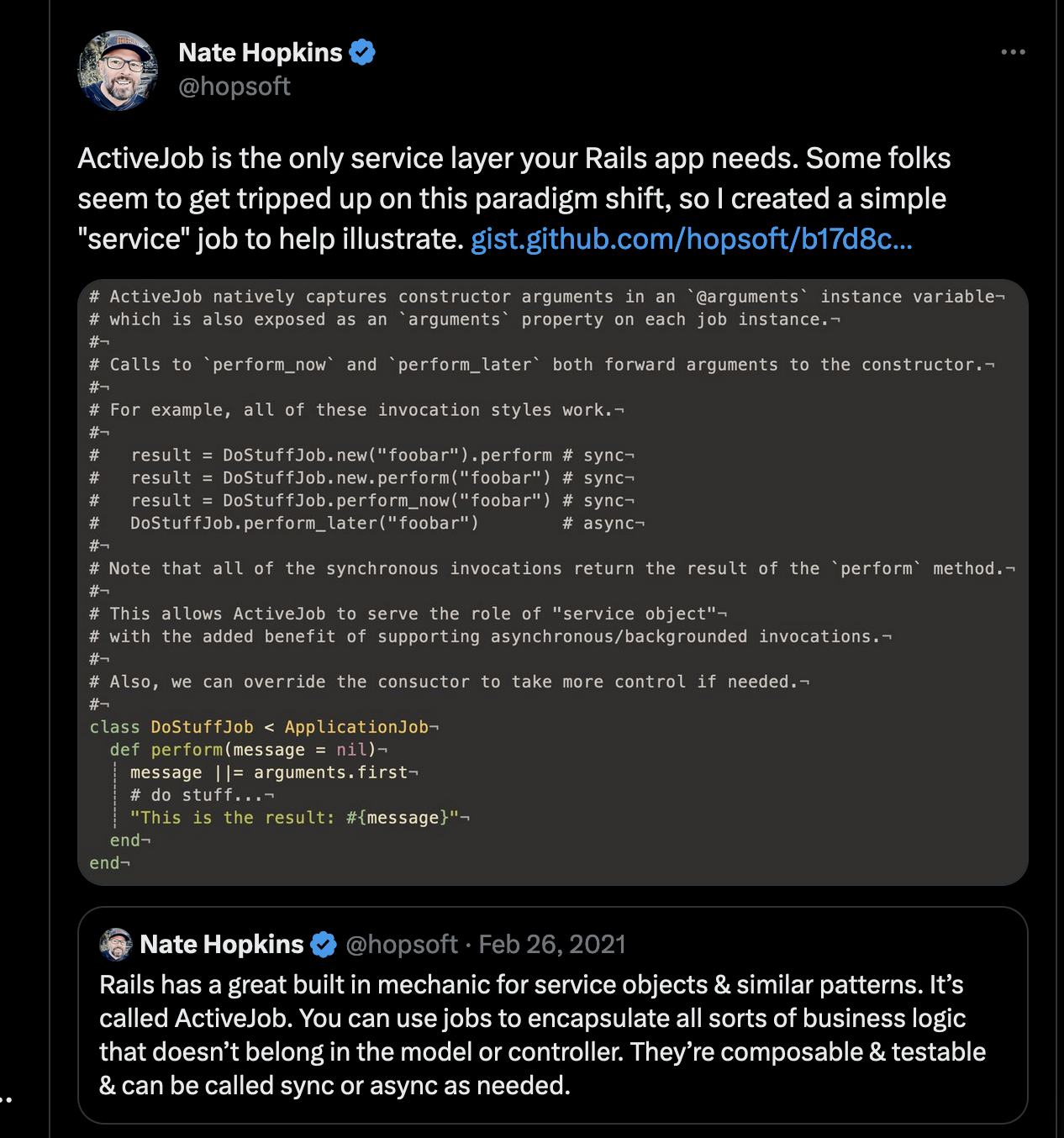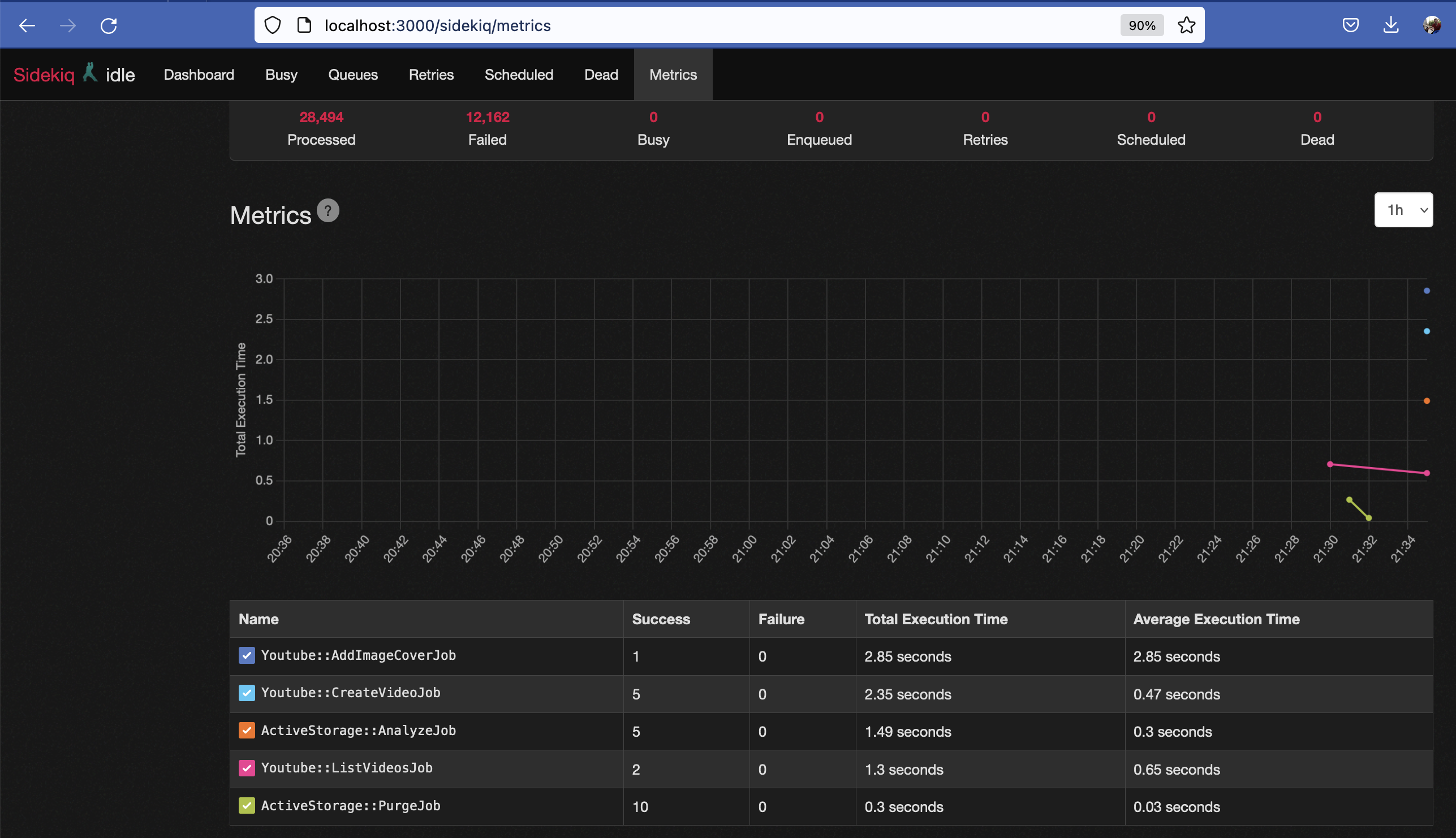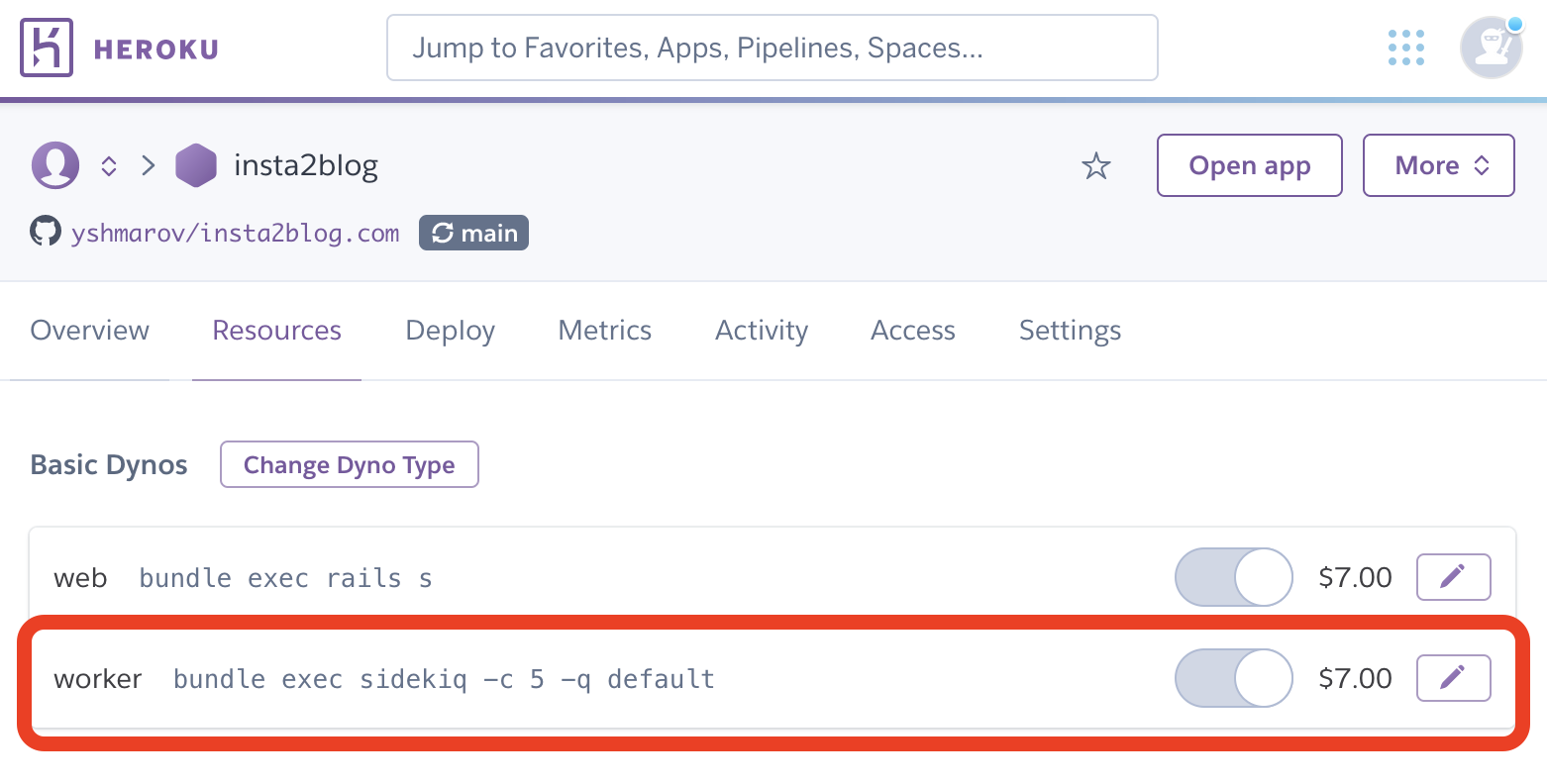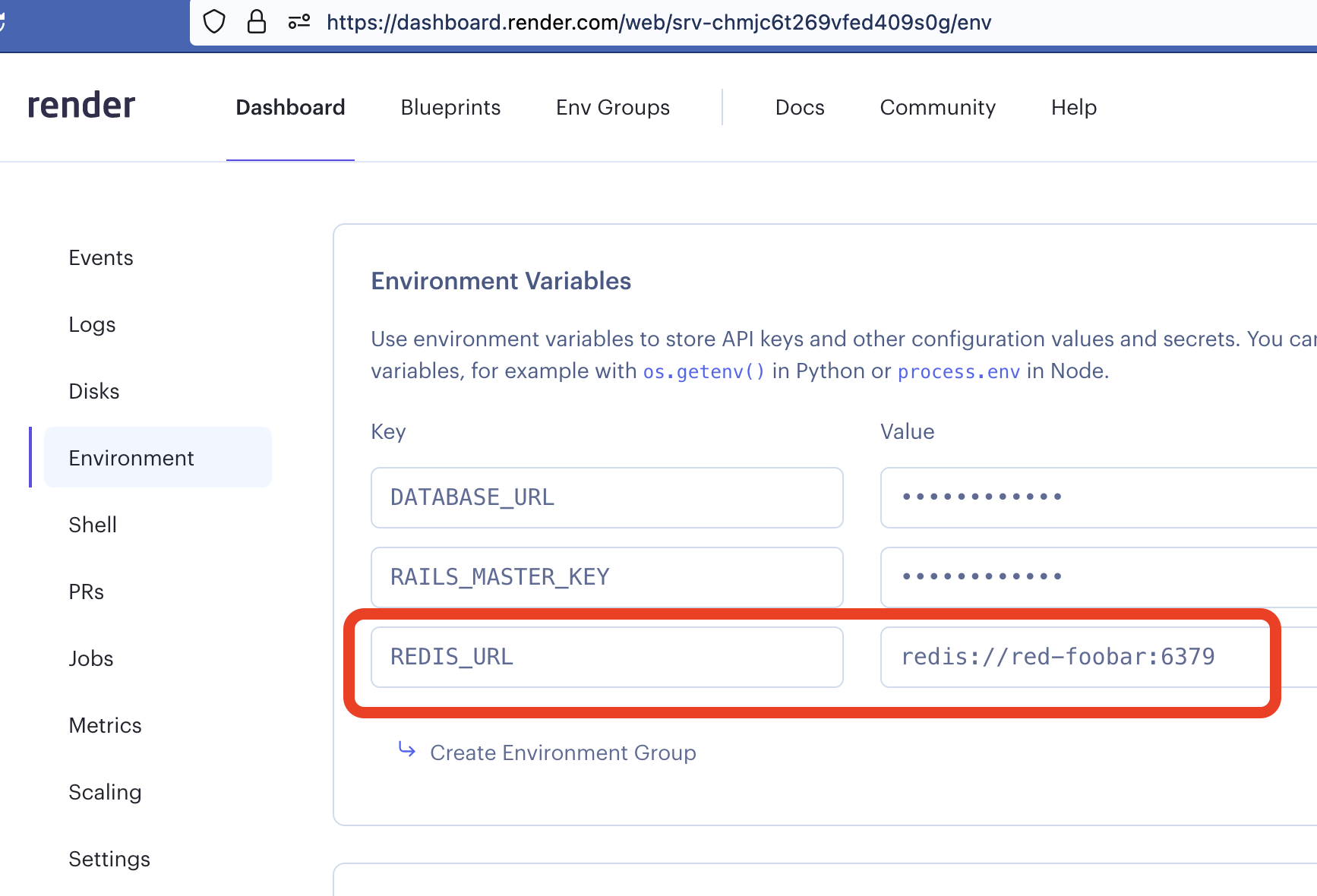 Use Sidekiq in Development and Production
Use Sidekiq in Development and Production
ActiveJob is a Rails feature for background job processing.
This means that you can make tasks run in parallel to the rails server request-response cycle in a separate process.
There are different adapter tools for processing ActiveJobs.
Previously I wrote about processing ActiveJobs with gem good_job and Postgres without Redis.
Jobs vs Services #
This tweet was a real “paradigm shift” for me:

Since I read this post, I do not create a “/services” folder in my Rails apps. Instead, I put everything under “/jobs”
Install Sidekiq #
Gem Sidekiq might be the most popular ActiveJob adapter. It uses Redis database to store a que of jobs that should be performed, and their execution statuses.
# Gemfile
# bundle add sidekiq
gem 'sidekiq'
Run sidekiq in a separate terminal tab, or add it to Procfile.dev
# Procfile.dev
web: bin/rails server -p 3000
css: bin/rails tailwindcss:watch
+worker: bundle exec sidekiq -c 5 -q default
By default, ActiveJob runs within with your rails server in development. Enforce sidekiq for the development environment:
# config/environments/development.rb
config.active_job.queue_adapter = :sidekiq
Sidekiq provides a dashboard to view the execution statuses of all your jobs.

Enable the dashboard in routes:
# config/routes.rb
mount Sidekiq::Web => '/sidekiq'
Now you can visit http://localhost:3000/sidekiq to view the dashboard! 🥳
Enable access to the sidekiq dashboard only for authenticated admin users:
# config/routes.rb
require 'sidekiq/web'
Rails.application.routes.draw do
authenticate :user, ->(user) { user.admin? } do
mount Sidekiq::Web => '/sidekiq'
end
end
Deploy to production and use Sidekiq with Redis #
There are 3 things you need to do:
- Enable sidekiq for production:
# config/environments/production.rb
config.active_job.queue_adapter = :sidekiq
- Create a worker with the run command
bundle exec sidekiq -c 5 -q default(heroku example):

- Install Redis and provide the
REDIS_URLto your worker (render example):

That’s it! 🎬
Did you like this article? Did it save you some time?